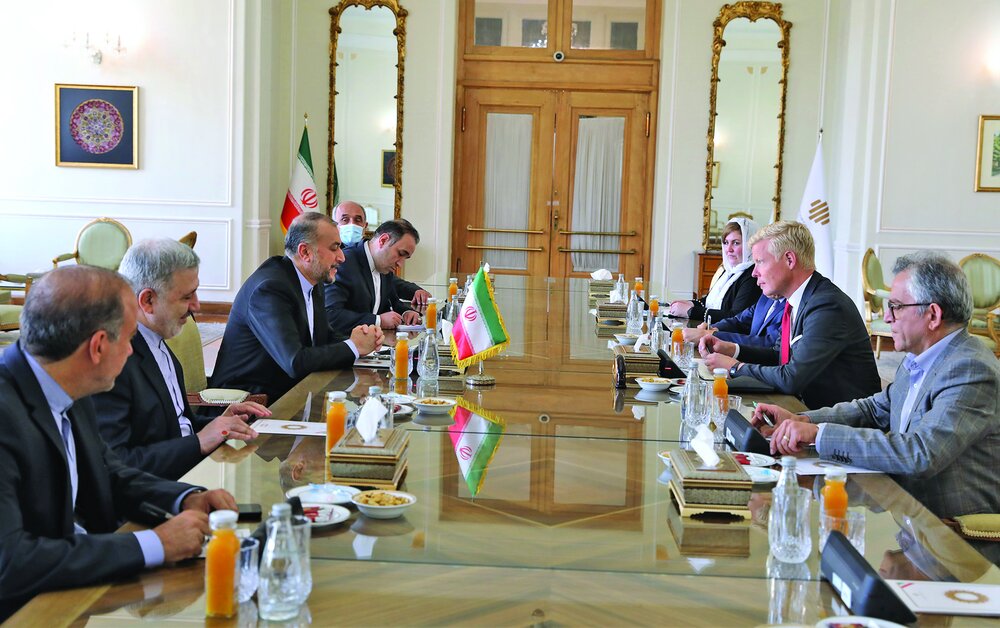Stability in Yemen affords security to West Asia, Persian Gulf: Iran FM

TEHRAN- Iran’s Foreign Minister Hossein Amir Abdollahian stated late on Sunday that stability and security in the war-torn Yemen directly will have positive effect on the entire West Asia, including the Persian Gulf region.
The comments were made by Amir Abdollahian at a meeting with UN Special Envoy for Yemen Hans Grundberg in Tehran.
Iran's senior diplomat also insisted on Tehran’s long-held policy that Yemen's citizens should be allowed to decide about the future of their country.
“The Islamic Republic of Iran wants peace, stability and security for the great nation of Yemen and believes that stability and security of this country have a direct impact on stability and security of the region and the Persian Gulf,” he remarked.
Iran's foreign minister said that the continuance of the status quo, which has been in place since the formation of a UN-brokered truce in April, is contingent on the total lifting of the siege put on the war-torn nation by the Saudi-led coalition.
"No one can remain indifferent to the fate of 20 million Yemeni women, children and men, who are living in difficult conditions trying to meet (their) basic needs such as medicine, food and water."
He also praised the UN envoy's efforts to foster peace in Yemen, but he decried acts of sabotage hampering the implementation of the ceasefire, emphasizing the significance of easing the strict Saudi-led siege on the impoverished country.
Grundberg, for his part, praised Iran's positive efforts to promote peace in Yemen and stated that he has always attempted to negotiate a truce in the country since taking office.
The UN envoy underscored that all parties must work together to secure a long-term truce in Yemen.
The UN-mediated cease-fire between the coalition of aggressors and the widely supported Houthi Ansarullah movement in Yemen originally went into force in April. After that, the cease-fire was twice extended.
Grundberg said the parties to the extension, running from August 2 to October 2, agreed to step up negotiations in order to quickly establish an extended ceasefire agreement.
The United States’ closest regional allies, Saudi Arabia and the United Arab Emirates, along with indirect involvement of the Israeli regime, have been at war with Yemen since March 2015.
The goal of the invasion has been to oust the Ansarullah resistance movement and restore the old rulers of the impoverished nation, who were favorable with Riyadh and Washington, to power. None of the coalition's goals have been attained.
The conflict, which has received unwavering U.S. military, logistical, and political support, has killed tens of thousands of Yemenis and turned the whole nation into the site of the world's greatest humanitarian disaster.
Yemen's defense forces, which include the army and allied Popular Committees, have promised not to lay down their guns until the country is completely liberated from the scourge of the attack.
Leave a Comment